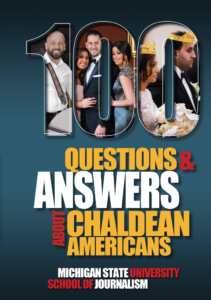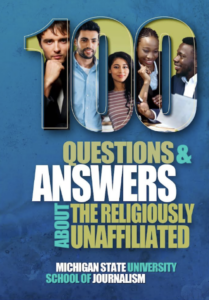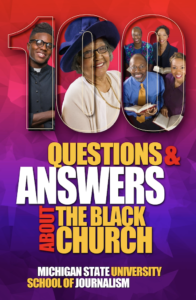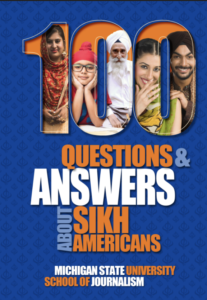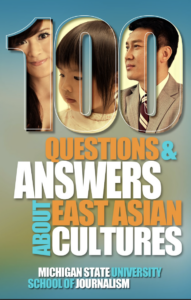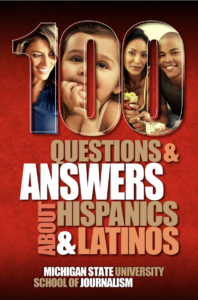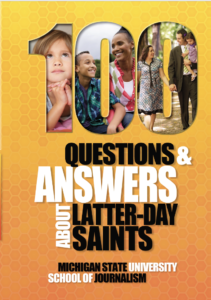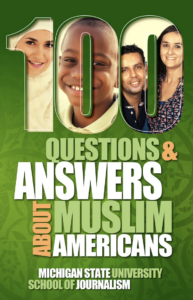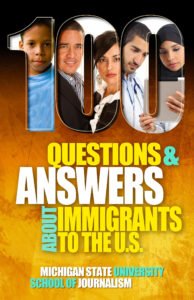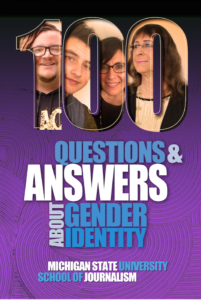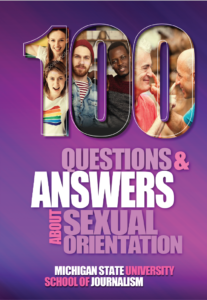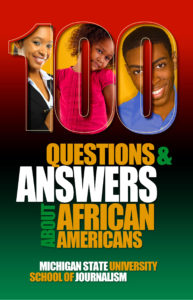These are some of the items from “100 Questions and Answers About American Jews.” We present this selection for free to share the information and to show you what the guide is like. You can order the guide in print or as an ebook from Amazon and other online booksellers. It will include all 100 questions and answers as well as videos and charts.
Are Jews a religion, race, ethnicity, nationality, culture or a people?
Why do some Jewish people not drive, use electricity or engage in certain other activities on Shabbat?
What is the Torah?
How are Judaism, Christianity and Islam alike?
What is the difference between Hebrew and Yiddish?
Which is correct, temple or synagogue?
What is the significance of the small, circular cap some Jewish men wear?
What does kosher mean?
What states have the largest Jewish populations?
What is Judaism’s position on abortion?
What is a bar or bat mitzvah?
In a Jewish wedding, why does the groom break a glass?
Is there a Jewish lobby?
How many Jews died in the Holocaust?
Why is Jerusalem important to the Jewish people?
Do Jewish Americans support the policies of Israel?
What is Zionism?
Are Jews a religion, race, ethnicity, nationality, culture or a people?
Jews are all of these. They are a people with a shared religion, history, present and future. Most Jewish people observe religious aspects of Judaism to some degree. They share a common culture. It includes literature, art, music, dance and theater, as well as traditions involving language and food. Jewish people generally support remembrance of the Holocaust and the sovereignty of the modern State of Israel, though opinions diverge on its policies. While there are genetic similarities among some Jewish people, there are Jews from all ethnicities, nationalities and racial groups.
Why do some Jewish people not drive, use electricity or engage in certain other activities on Shabbat?
Shabbat, the Hebrew word for Sabbath, recalls how God took a day of rest after six days of creating the world. The commandments tell people to take a day of rest, too. Traditionally, rest means cessation from specific creative activities outlined in the Mishna and Talmud. Contemporary rabbis determine what modern activities would be violations of ancient principles. Most American Jews do not observe Shabbat in a strictly traditional way. For those who do, that can mean no work, cooking, spending money, using electronic devices or writing. There is a wide spectrum of how Jewish people celebrate Shabbat. Shabbat begins at sundown on Friday and continues until sundown on Saturday.
What is the Torah?
The Torah holds the foundational scriptures of Judaism. The Torah, also called the Pentateuch, is the first five books of the Tanakh. They are Genesis, Exodus, Leviticus, Numbers and Deuteronomy. These are also called the five books of Moses. The Torah includes 613 commandments. The Torah is part of the Hebrew scriptures, but the word is sometimes used to refer to the entire Hebrew Bible.
How are Judaism, Christianity and Islam alike?
These religions are all monotheistic, meaning they teach there is only one God. Judaism is the oldest of the three. Islam is the newest. These religions are called the Abrahamic religions because all view Abraham as their patriarch and a major prophet. Shared scriptural foundations have created some similar practices and scriptural uses.
What is the difference between Hebrew and Yiddish?
Hebrew is the primary Jewish language and the official language of Israel. Yiddish, the historical language of Ashkenazic Jews, was once the language most widely used by Jewish people. Yiddish derives from Hebrew and Middle High German but has its own grammar. Written Yiddish uses Hebrew characters. If someone asks, “Do you speak Jewish?” they probably mean Yiddish. Many Orthodox Jews speak Yiddish.
Which is correct, temple or synagogue?
Contemporary places of worship and study are called by both names, but some reserve the word temple for the original structure. Orthodox Jews do not refer to their houses of worship as temples. Some Conservative and Reconstructionist congregations do. Most Reform congregations use temple as if to say “This is our temple now.” Many use neither term, referring instead to a “shul” or a “community.” Jewish houses of worship are not called churches.
What is the significance of the small, circular cap some Jewish men wear?
Wearing a kippah, as it is called in Hebrew, or yarmulke in Yiddish, reminds men that there is someone above them. Some men cover their heads all the time. Some cover their heads only for services, teaching or studying. Others never do.
What does kosher mean?
The Hebrew noun kashrut encompasses the entire system of keeping kosher. The adjective kosher (pronounced “KO sher” in English and Yiddish and “ka SHARE” in Hebrew) means suitable or fit. It is biblically based. Kosher means that food and places where it is cooked, sold and eaten meet Jewish law. Kosher meat must come from animals that have cloven hooves and chew their cud. This includes cattle, sheep, goats, deer and bison. Pork is not kosher. Fish must have fins and scales, so shellfish like shrimp and lobster are not kosher. Rodents, reptiles, amphibians and insects are forbidden. Animals must be slaughtered in the most humane way possible. Rules include keeping meat and dairy products separate. Foods grown in soil or on plants and bushes are kosher. Food should not be taken from a tree in its first three years.
What states have the largest Jewish populations?
About a quarter of the country’s Jews, 1.6 million, lived in New York according to the 2010 U.S. Census. About 18 percent lived in California. The next eight states in order were Florida, New Jersey, Pennsylvania, Massachusetts, Maryland, Illinois, Ohio and Texas. Jews live in every state.
What is Judaism’s position on abortion?
Jewish views on abortion do not fit easily into the current American yes-or-no debate. Judaism neither bans abortion nor allows for easy and indiscriminate abortion. In general, Jewish law favors the life of the mother over the life of the fetus, but it’s rarely an either-or question. A long body of history and many other considerations go into decisions. Most liberal Jews support abortion rights.
What is a bar or bat mitzvah?
Bar or bat mitzvah means “son or daughter of the commandment” and marks the age of 13, or, for Orthodox girls, 12. This is the age of maturity, when people become responsible for performing the commandments. The young person may demonstrate this new status by going before the congregation at the next Shabbat. There, they recite or chant Hebrew blessings, read from the Torah or lead part of the service. Orthodox girls do not participate in regular religious service as boys do. An Orthodox girl might give a commentary on that week’s Torah portion or participate in a service with a female congregation. A celebration often accompanies the event. That relatively modern development is optional.
In a Jewish wedding, why does the groom break a glass?
The breaking of a glass at the end of a Jewish wedding has many interpretations. One is that it reminds us of the destruction of the Temple. Another is that life includes sorrow or the fragility of marriage. In some weddings, both the bride and the groom stomp on the glass. In all Jewish weddings, you can expect people to cheer “Mazel tov,” the Hebrew wish for congratulations or good luck.
Is there a Jewish lobby?
There is not an umbrella organization advancing a unified plan for Israel. People who oppose U.S. policy toward Israel sometimes use that stereotype. Hundreds of non-Jewish business, labor, religious, social and racial groups lobby independently. Jewish lobbying groups operate the same way. Not only do Jewish lobbying groups set their own agendas and campaigns, they often work in opposition.
How many Jews died in the Holocaust?
It is estimated that 6 million or more Jews were killed during the Holocaust. An exact number is difficult to know. Reasons for that include the length of the Holocaust and inconsistency and gaps in records. Research is still going on.
Why is Jerusalem important to the Jewish people?
The First Temple was built there by King Solomon around 970-931 Before Common Era. An imposing structure, it housed the Ten Commandments inside the Ark of the Covenant. The Babylonians destroyed the Temple in 586 Before Common Era. The tablets with the Commandments and Ark were lost. Jews returned to the site and built a larger Second Temple in 520-515 Before Common Era. The Romans destroyed that in 70 Common Era. Today, some traditional Jews pray daily for God’s restoration of the Temple in Jerusalem.
Do Jewish Americans support the policies of Israel?
Just as with U.S. politics, people have varying opinions. Disagreeing with Israeli policies does not mean one does not support the State of Israel. Jewish Americans do not vote in Israel’s elections but actively support or oppose its policies.
What is Zionism?
Zionism is the belief that Jews have the right to national self-determination, and that Israel, as the homeland of the Jewish people, has a right to exist. Zion refers to the hill of Jerusalem and represents the historic land of the Jewish people. The World Zionist Organization’s congress meets every two years. It decides policy for the Jewish Agency for Israel, which works for the immigration of Jews to Israel. Zionism does not mean an all-Jewish state.

